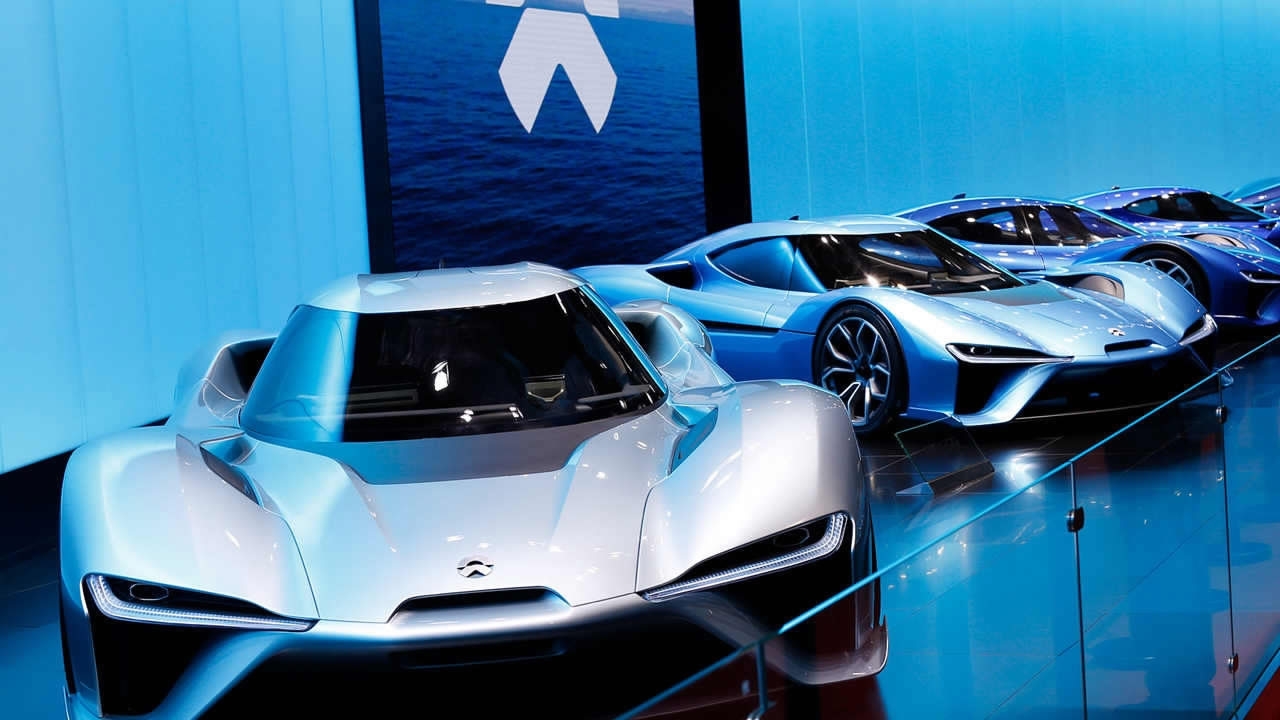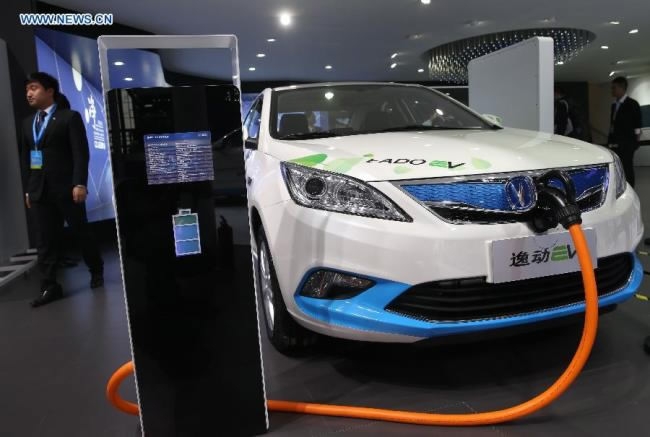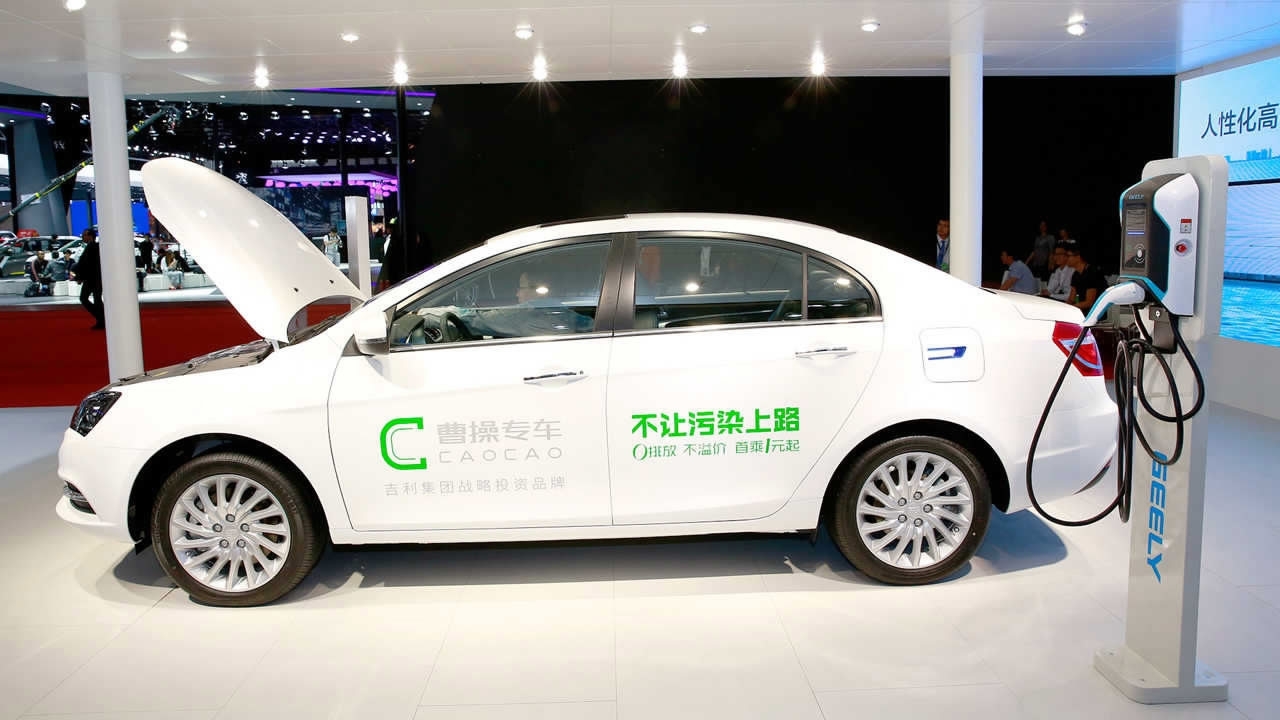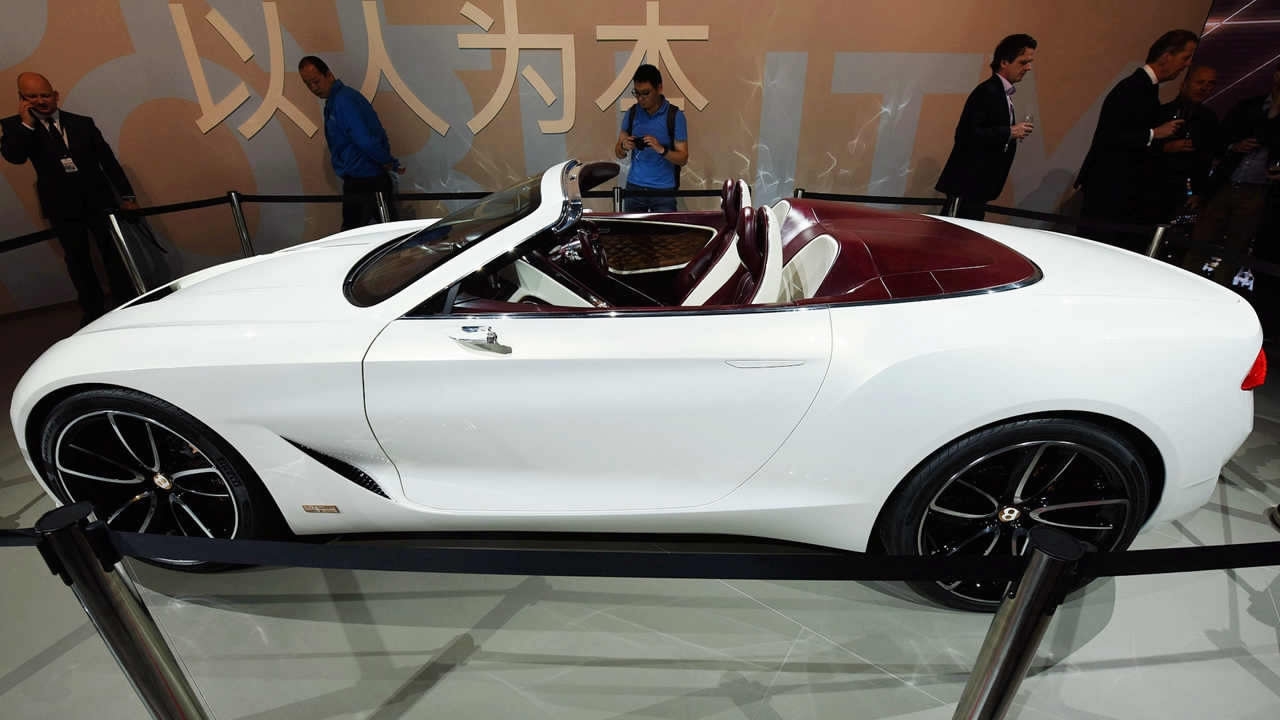
Opinions
11:09, 05-Oct-2017
Opinion: Riding towards a better future with e-car plan
By Hassan Arshad Chattha from China Plus

By committing to ceasing production of conventional combustion engine vehicles in the near future, China has set the stage for progressive disruption across the tech, automotive and energy industries.
In early September, China announced that it will set a deadline in the near future for a halt in production of carbon fuel consumption based vehicles in favor of electric and renewable energy based vehicles.
By being one of the largest energy consumers and producers of the world, as well as one with access to massive amounts of cheap coal, China has set a bold precedent for the other nations to follow by giving such critical importance to renewable energy.

China's Chang'an electric car is displayed at 2015 Shanghai International Automobile Industry Exhibition in Shanghai, China, April 22, 2015. /Xinhua Photo
China's Chang'an electric car is displayed at 2015 Shanghai International Automobile Industry Exhibition in Shanghai, China, April 22, 2015. /Xinhua Photo
To get a better perspective of the scale and ramifications of this decision, it is important to understand China’s impact on the automotive market.
China is the world’s largest automotive manufacturing and sales base with 28 million vehicles produced overall in 2016. According to the International Organization of Motor Vehicles (IOMV), this accounts for nearly 30% of the world's total of 94 million vehicles sold.
The most important outcome is the hope for containment of rampant climate change which is leading up to devastating effects on global climate in the form of global warming, over powering storms, sweltering heat and toxicity of the air we breathe.
The rise of renewable energy will greatly assist in curbing cataclysmic climate change and help alleviate some of the future causes of violent and endless conflict over depleting resources on a dying planet. The adoption of such policies by China will also encourage other nations to follow suit, both by inspiration as well as experience and technology sharing with China.

Geely’s pure electric car shows up at Shanghai Auto Show 2017, on April 19, 2017. /VCG Photo
Geely’s pure electric car shows up at Shanghai Auto Show 2017, on April 19, 2017. /VCG Photo
As a timeline, China, the UK and France have marked some time around 2040 as the targeted deadline when they can effectively halt all production of fossil fuel powered combustion engines.
The true impact comes from China’s decision to do the same. This monumental decision will have long-lasting impacts on the development trend of human civilization and Chinese progress in the near and distant future.
Beyond the obvious impact on climate change and pollution, there are a couple of other quite interesting outcomes.
The first is, it gives Chinese manufacturers an incredible advantage in the coming future in key areas. There are many products that began manufacturing outside of China in the past, but in their current and successive iterations, China has taken up the mantle to become the leading manufacturer. Take the simple example of the light bulb. It began its life outside China, but in the manufacture and advances of its successor, LED lights, China is the de facto manufacturing leader. Similarly, smartphones and many other products are also on the same trajectories.
In fact, on the buzz generated by this decision, stocks of BYD, the largest Chinese electric vehicle manufacturer rose by a healthy 7.2 percent. Battery manufacturers also saw similar upward ticks in stock prices and valuations.

Bentley’s electric concept car EXP 12 Speed 6e shows up at Shanghai Auto Show 2017, on April 19, 2017. /VCG Photo
Bentley’s electric concept car EXP 12 Speed 6e shows up at Shanghai Auto Show 2017, on April 19, 2017. /VCG Photo
Furthermore, due to the Chinese government's support of such initiatives, the subsequent boost given to Chinese manufacturers will spur them on towards taking the lead in electric car technology and market domination.
The main difference in all this from other countries is that due to China’s colossal manufacturing base, it can harness economies of scale to churn out affordable electric vehicles to enable mass adoption. This is where the actual paradigm shift will occur.
In addition to these, another profound change will also come into affect a bit later. Due to the rise of electric vehicles and renewable energy, the dynamics of the energy industry will also radically shift to adjust to the change in supply and demand. There is potential for surplus resources to be cheaply harnessed in the isolated cases to assist developing and under developed nations to bring about effective positive change in their economic fortunes.
The push towards electric vehicles will also be combined with the development of new technologies, with some of the greatest potential being in driverless cars. This will hopefully usher in a new age of safe and efficient daily commutes, cleaner air and greatly reduced noise pollution, inevitably leading to a better quality of life.
All in all, it is a win-win situation for China and the world when the largest manufacturer and purchaser of vehicles takes up a vital responsibility and commits to bringing about such large scale change that has the potential for creating a better future for humanity.
(This piece was originally published in China Plus. The author is a digital media producer and strategist, tech enthusiast and digital nomad. The article reflects the author’s opinion, and not necessarily the views of CGTN.)
Source(s): China Plus

SITEMAP
Copyright © 2018 CGTN. Beijing ICP prepared NO.16065310-3
Copyright © 2018 CGTN. Beijing ICP prepared NO.16065310-3